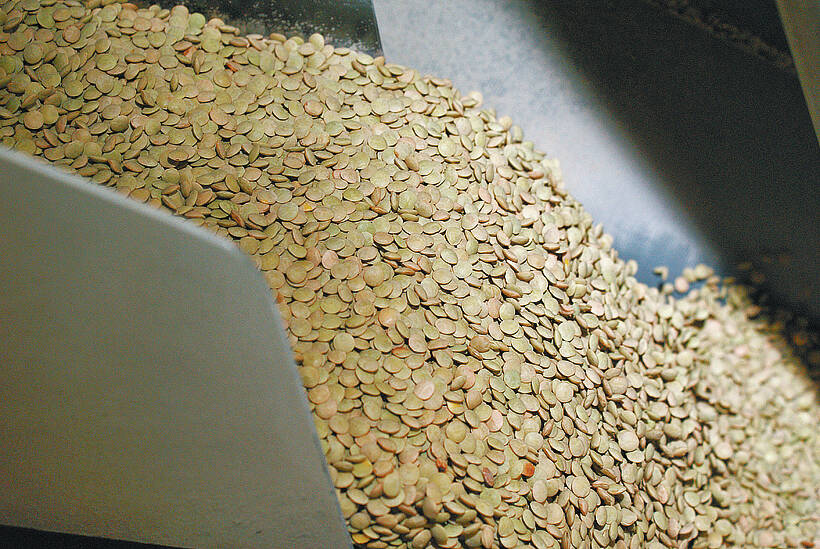DES MOINES, Iowa — The American hog industry fears that the impact of well-intended rules and regulations might cost farmers dearly.
Possible restrictions on production contracts and even an outright ban on packers owning pigs could hurt a hog farming business that now relies on the dependability of producer-packer inter-reliance, the U.S. National Pork Producers Council said during the World Pork Expo.
Changes by the U.S. Department of Agriculture to the Grain Inspection, Packers and Stockyards Administration and a senator’s proposal to ban packer ownership aren’t meant to hurt farmers, but they would, the council said.
Read Also

Green lentil market oversupplied
Farmers in Western Canada can expect price pressure on their new crop of green lentils, as the available supplies among the world’s major lentil-growing nations increase significantly.
“That’s the real danger, is the unintended consequences,” said Neil Dirks, the council’s chief executive officer.
No one outside the USDA knows what the GIPSA proposals will be, but NPPC and other livestock and meat groups were upset by 2010 proposals that were never enacted.
Stopping packers and farmers from forming customized contracts with different premiums and discounts would stop many types of production, some say. Having to treat every producer the same doesn’t allow packers to reward practices they or the industry want to encourage or establish high value relationships leading to specific products.
That would remove a lot of value from what the pork industry is trying to develop with new products and processes.
“If these new GISPA provisions are finalized and they’re like the 2010 proposal, the likely negative effects on the livestock industry would wipe out any benefits we get through (the Trans-Pacific Partnership,)” said Jim Heimerl, an NPPC director.
Livestock market analyst Steve Meyer agreed. He said a farmer who wanted to specialize in one breed of hog, organic production or non-GMO feeding might find he couldn’t sign a contract guaranteeing him a bonus.
“Are you going to do that without some sort of a contractual arrangement that tells you that you’re going to get that premium?” said Meyer.
The pork producers council is demanding that any new GIPSA rules be made available for public comment and an economic impact study.
The proposed ban on packer ownership of hogs comes from Senator Chuck Grassley of Iowa, who has previously lobbied for a ban to be included in the U.S. farm bill.
NPPC officials said not only would a law ban packers owning barns but would send reverberations throughout the system.
“It’s extremely broad,” said Heimerl.
It would add costs at many levels, discourage certain developments and create a less flexible value chain, costing everybody.
“Banning packer ownership would likely decrease hog prices,” said Heimerl.
Well-intended rules and legislation attempt to preserve farmer freedom and control, but the reality of the modern hog industry is that farmers not only benefit from close relationships with suppliers and packers but also need to prove they have those relationships when they go to the bank for a loan, NPPC officials said.
“Lenders simply won’t make the loans (without a contract),” said Heimerl.















